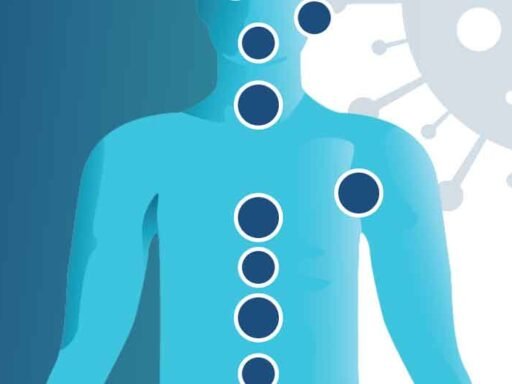Stress is an inevitable part of life, and while it’s often viewed as a mental or emotional phenomenon, its effects extend far beyond our thoughts and feelings. Chronic stress can take a significant toll on the body, affecting various physiological systems and contributing to a wide range of health problems. This article will explore the physical impact of stress and how it can manifest in different parts of the body.
1. Central Nervous System
At the core of the body’s reaction to stress is the central nervous system (CNS), which serves as the control center for orchestrating both physiological and behavioral responses to perceived threats or challenges. When confronted with stress, the hypothalamus, a critical region of the brain, is stimulated, prompting a cascade of events. This stimulation triggers the sympathetic nervous system to release stress hormones such as cortisol and adrenaline into the bloodstream. These hormones play a pivotal role in initiating the body’s “fight or flight” response, a natural survival mechanism designed to prepare us for confronting perceived threats or challenges. Consequently, heart rate, blood pressure, and respiration are elevated, priming us to respond effectively in stressful situations.
2. Cardiovascular System
Although the body’s stress response serves a purpose in the short run, continuous activation of the sympathetic nervous system can adversely affect the cardiovascular system. Sustained exposure to stress hormones may lead to hypertension (high blood pressure), atherosclerosis (artery hardening), and heightened risks of heart disease and stroke. Moreover, stress can worsen pre-existing cardiovascular conditions and foster the onset of arrhythmias (irregular heartbeats) and myocardial infarction (heart attack).
3. Immune System
Stress has a multifaceted relationship with the immune system, exerting profound effects on immune function in both acute and chronic contexts. Short-term stress can stimulate the immune system, enhancing its ability to mount a defense against infection and injury. This acute response is characterized by the release of certain immune cells and molecules, bolstering the body’s readiness to combat potential threats. However, chronic stress can have detrimental effects on immune function, leading to suppression of the immune response and heightened susceptibility to illness and disease. Prolonged activation of the stress response can disrupt the delicate balance of the immune system, resulting in dysregulation, chronic inflammation, and an increased risk of autoimmune disorders, allergies, and infections. Consequently, managing stress effectively is crucial for maintaining optimal immune function and overall health.
4. Digestive System
The relationship between stress and the digestive system is intricate, as the brain and gut maintain a two-way communication pathway termed the gut-brain axis. Stress prompts the brain to dispatch signals to the gut, influencing digestion, nutrient absorption, and gastrointestinal movement. Prolonged stress has been associated with various digestive disorders, including irritable bowel syndrome (IBS), acid reflux, ulcers, and inflammatory bowel disease (IBD). Furthermore, stress can instigate unhealthy eating behaviors like emotional eating or binge eating, exacerbating digestive issues further. Stress-induced bruxism, or teeth grinding, can also contribute to dental problems such as tooth wear and jaw pain and should be investigated by clinics like Bafdentistry.
5. Respiratory System
Stress can influence the respiratory system, altering breathing patterns and worsening respiratory ailments such as asthma and chronic obstructive pulmonary disease (COPD). During times of acute stress, breathing may become shallow and rapid, potentially leading to hyperventilation and sensations of breathlessness. Prolonged stress can elevate inflammation in the airways, provoking asthma flare-ups and exacerbating COPD symptoms. This can result in heightened difficulty in breathing and an elevated susceptibility to respiratory infections.
6. Musculoskeletal System
The musculoskeletal system is highly susceptible to the effects of stress, with chronic tension and muscle stiffness commonly associated with psychological stress. Continual activation of the stress response may result in muscle tension, headaches, jaw pain, and back pain. Furthermore, chronic stress can contribute to the emergence of musculoskeletal disorders like fibromyalgia and tension-type headaches, intensifying discomfort and pain.
Conclusion
The physical impact of stress is profound and far-reaching, affecting virtually every system in the body. From the central nervous system and cardiovascular system to the immune system, digestive system, respiratory system, and musculoskeletal system, chronic stress can contribute to a wide range of health problems and exacerbate existing medical conditions. Recognizing the physical signs of stress and implementing strategies to manage stress effectively are essential for promoting overall health and well-being. By prioritizing self-care, adopting healthy coping mechanisms, and seeking support when needed, individuals can mitigate the physical effects of stress and improve their quality of life.






